Author: Dylan Achey | Jim Whitaker, PE | July 12, 2022
Revised FAC-001 and FAC-002 Mandatory Standards Submitted for FERC Approval
On June 14, 2022 NERC submitted its modifications to the FAC-001 and FAC-002 reliability standards. The proposed Reliability Standards FAC-001-4 and FAC-002-4 contain new and revised requirements that would establish the Planning Coordinator as the entity responsible for defining changes to existing interconnected Facilities. The proposed Reliability Standards would resolve the uncertainty and confusion that has arisen regarding the meaning of “materially modify” under the currently effective standards.
Related Services
Clarifying the Requirement to “Materially Modify”
FAC-001 and FAC-002 work in conjunction with each other to ensure that that the proper studies are performed to evaluate the reliability impacts of newly interconnecting Facilities and existing interconnected facilities. In the currently effective standards, these are referred to as changes that “materially modify” the Facility. As part of a broader project assessing the Reliability Standards for improvements to address the growth of inverter-based resources on the Bulk Power System, the NERC Inverter-Based Resource Performance Task Force recommended that this “materially modify” language be revised to provide needed clarity for applicable entities regarding the types of changes that must be addressed in the interconnection studies.
NERC notes that the term “materially modify” should be used to distinguish between Facility changes that are required to be studied and those that are not required to be studied. The lack of responsibility for any one entity to define what constitutes a “materially modifying” change has led to this confusion and could lead to reliability risks if changes that affect the electrical performance of an inverter-based resource are not studied in detail. For example, NERC states in its petition that a planning entity may consider a change to an inverter-based resource’s control system software to be a “materially modifying” change requiring study, but the owner of that inverter-based resource may not make the same determination and therefore would not provide any notification it is making the change. The control system change would therefore go unstudied, and its potential reliability impacts unassessed. As another example, NERC noted the potential for confusion regarding the circumstances under which a re-power of a wind plant would need to be studied.
NERC’s reporting on system disturbances related to Inverter-Based Resources control issues (e.g., post trip performance of inverter-based resources after system disturbances in California and Texas) has informed the industry of the need for this change.
Newly Approved Standard Modifications
To address these issues, NERC proposes to revise the FAC-001-4 and FAC-002-4 Reliability Standards to: (i) clarify which entity is responsible for determining which Facility changes are “materially modifying,” and therefore require study under the standards; (ii) clarify that a Generator Owner should notify the affected entities before making a change that is considered “materially modifying”; and (iii) revise the term “materially modifying” so as not to cause confusion between the FAC standards and the FERC interconnection process orders, which use similar terminology.
Generators under the proposed standard FAC-002-4 (R6) would be subject to the Planning Coordinators’ publicly posted definition of what constitutes a qualified change for the purposes of Facility interconnection study or re-study. The proposal leaves the precise definition of what constitutes a qualified change up to the Planning Coordinator.
NERC believes that the proposed Reliability Standards, if approved by the FERC, will advance the reliability of the Bulk Power System by helping to ensure that changes to existing interconnected facilities that can have reliability impacts, are properly addressed in interconnection requirements and studies.
NERC Compliance Carry Over Effects
There are significant implications for the NERC compliance programs of registered entities relating to their respective roles in the new Facility interconnection review process as Generator Owners, Transmission Owners, and Planning Coordinators. A review of those processes in anticipation of FERC approval of the FAC-001-4 and FAC-002-4 standards is necessary to stay ahead of the regulatory change curve.

Next Steps
Utilities should carefully review the most recent NERC Petition to FERC and the revised standards in light of their respective roles in the interconnection process. The standards’ changes will have a 12-month implementation period after FERC approval.
With expertise in all areas of power system planning and power delivery, along with protection and control system engineering, TRC can provide independent technical advice and project management services to review your company’s affected compliance related documents, make recommendations for compliance process changes and assist in preparation or perform the system studies required.
Utilities should carefully review the most recent FERC Order and their current facilities rating compliance process documents. Companies should be prepared to modify their facilities ratings methods and other affected NERC compliance processes program documents as necessary to maintain compliance.
With expertise in all areas of power system planning and power delivery, along with protection system engineering, TRC can provide independent technical advice and project management services to review your company’s affected compliance related documents.
Resources
 FAC-001-4 Redline to current version
FAC-001-4 Redline to current version
Published April 1, 2022
 FAC-002-4 Redline to current version
FAC-002-4 Redline to current version
Published April 1, 2022
 NERC Petition to FERC for Approval of FAC-001-4 and FAC-002-4
NERC Petition to FERC for Approval of FAC-001-4 and FAC-002-4
Published June 14, 2022
 FAC-001 & FAC-002 Implementation Plan
FAC-001 & FAC-002 Implementation Plan
Published April 1, 2022
 TRC Regulatory Update – Odessa Texas Disturbance Report
TRC Regulatory Update – Odessa Texas Disturbance Report
Published September 29, 2021
 TRC System Studies Services
TRC System Studies Services
Published
 TRC NERC Compliance Solutions
TRC NERC Compliance Solutions
Published

Your Trusted Regulatory Advisor
TRC closely follows the national and state regulatory trends in all regions of North America. Our approach to power system engineering, planning, design, construction and commissioning testing balances solutions that incorporate appropriate industry trends, mandatory standard requirements, regulatory guidance, compliance obligations, best practices, operational goals and budgets. With expertise in both power system planning and operations, TRC supports public utilities and private energy providers in their effort to stay ahead of the curve and to meet regulatory requirements as they evolve.
This regulatory update is provided as a service to TRC’s utility clients, helping to keep you informed of forward-looking issues that will impact your company’s electric system reliability risks along with related topics regarding regulatory developments to help you achieve your company’s business goals.
Sharing Our Perspectives
Our practitioners share their insights and perspectives on the trends and challenges shaping the market.

Enhance Security Planning and Reporting with Key Takeaways from NERC’s 2024 Cyber Report
May 30, 2025
NERC has issued its 2024 Cyber Security Report, reviewing reported incidents related to Reliability Standard CIP-008-6.

Challenges Surround Approval of PRC-029-1
April 30, 2025
Approved by the Board of Trustees in 2024, NERC’s PRC-029-1 standard sets inverter-based resources (IBR) performance requirements ensuring they can “withstand voltage or frequency disturbances inside defined limits” and can “continue operating as specified.”

FERC Examines Co-Located Load and Generation Rule
April 21, 2025
Since FERC hosted its technical conference in late 2024, many industry stakeholders have submitted their comments addressing how to study and potentially regulate new co-located load and generation.

Cybersecurity Threats Lead NERC to Modify CIP Standards
March 11, 2025
Cybersecurity threats to the Bulk Electric System (BES) are escalating, with attackers continuously evolving their tactics to target critical infrastructure.

Large Data Center Load Loss Calls for System Impact Studies
March 3, 2025
On January 8, 2025, NERC released its review of an incident where the sudden loss of approximately 1,500 MW of data center load in Virginia exposed major reliability vulnerabilities in the Bulk Electric System (BES). This unanticipated event triggered voltage spikes and frequency imbalances, highlighting the need for system planners and operators to anticipate and mitigate these risks nationwide

NERC Approves New Extreme Weather Planning Standard
January 22, 2025
On December 10, 2024, NERC’s Board of Trustees approved standard TPL-008-1 Transmission System Planning Performance Requirements for Extreme Temperature Events. The petition to approve the TPL-008-1 standard was filed with the Federal Energy Regulatory Commission (FERC) on December 17, 2024 and will initiate the implementation plan upon final approval.

FERC Issues Guidance to Improve Power System Security and CIP Compliance
September 30, 2024
This update provides details from FERC 2024 staff report from CIP audits, so utilities can improve compliance and reduce security risks.

NERC Releases 2024 State of Reliability Report
September 19, 2024
The North American Electric Reliability Corporation (NERC) recently released its 2024 State of Reliability report, examining power system performance in calendar year 2023.

Facility Ratings Compliance Through a Corporate Community Approach
August 30, 2024
Facility Ratings play a critical role in the reliable planning and operation of the Bulk Electric System (BES) and yet maintaining compliance with relevant NERC standards remains an industry challenge.

Extreme Geomagnetic Disturbances Impact NERC Planning
August 8, 2024
Learn about the recent geomagnetic disturbance which caused stakeholders within the bulk power system to react swiftly to protect grid reliability. Find out the impacts and what NERC and the industry are doing about it.

Consistent NERC Compliance Evidence for Successful Audit Outcomes
June 27, 2024
While utilities often work in technical silos, NERC auditors are trained to cross check compliance evidence and data between interrelated standards.

New NERC Standards Help Protect Against Cyber Attacks
May 23, 2024
As part of NERC’s ongoing effort to bolster Critical Infrastructure Protection (CIP) requirements and enable the implementation of a security improvement concept known as virtualization.


NERC Proposes Changes to Registration Criteria for Inverter Based Resources (IBRs)
April 19, 2024
NERC has submitted for FERC approval new compliance criteria for the registration of IBRs as part of continuing efforts to address reliability risks. It is critical for renewable energy developers, generation owners and transmission owners to understand the potential implications for interconnection studies and interconnection queues.
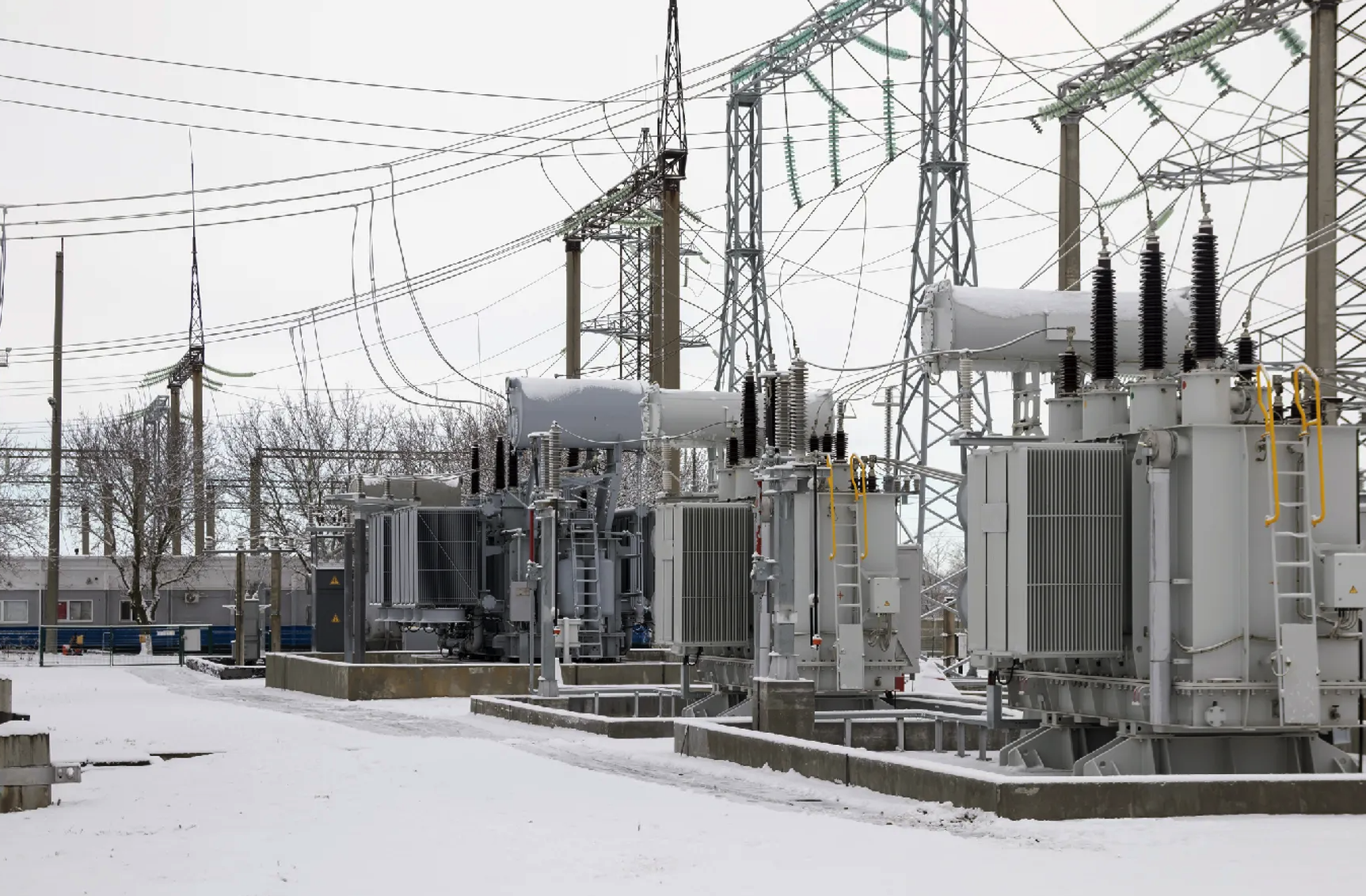
NERC Proposes Clarifications to EOP Cold Weather Standards
March 26, 2024
NERC has submitted proposed revisions to the EOP-012-2 – Extreme Cold Weather Preparedness and Operations standard, for FERC approval on an expedited basis. The proposed revisions address the remaining key recommendations from the FERC–NERC Joint Inquiry Report into Winter Storm Uri and directives arising from a 2023 FERC Order regarding the previously submitted cold weather standards.

Update to FAC-003-5 Brings Sweeping Changes to Transmission Classifications Starting April 1
March 19, 2024
Update to FAC-003-5 Brings Sweeping Changes to Transmission Classifications Starting April 1

Prevent NERC Compliance Failures with Readiness Reviews
February 20, 2024
Every NERC-registered utility must strive for continuous compliance with their portfolio of applicable NERC Reliability Standards

NERC Releases 2024-2026 Standards Development Plan
January 26, 2024
NERC has submitted its 2024-2026 Reliability Standards Development Plan to the Federal Energy Regulatory Commission (FERC), outlining its current priorities and future standard development plans to protect the reliability of the Bulk Power System over the next three years.

NERC & FERC Release Winter Storm Elliott Report
January 2, 2024
NERC and FERC have released their final report on Winter Storm Elliott which provides reinforcement for recommendations in prior cold weather-related disturbance event reports. The Report identifies critical reliability performance shortcomings and the reliability related near misses. NERC states that a crisis was “narrowly dodged.” The Report outlines the steps the industry must take to avoid a repeat in the future.

FERC Order 901 Calls for Standards to Address IBR Reliability Gaps
November 27, 2023
Inverter Based Resources are playing central role when it comes to adding new electric generation capacity into the bulk power system.

NERC Releases Inverter Based Resources Webinar Series
October 19, 2023
As the power delivery system continues to rapidly evolve due to decarbonization policy initiatives, inverter-based resources (IBRs) are playing an ever-more significant role in generation additions to the bulk power system. NERC and other technical organizations have taken numerous actions to support the reliable integration of these resources.

FERC Issues Order 2023 to Resolve Interconnection Process Issues
September 25, 2023
The Federal Energy Regulatory Commission has approved Order 2023 to facilitate and improve the speed and reliability of adding new energy resources to the power system

CFATS Program Expires but Reauthorization Anticipated this Fall
September 6, 2023
Regulated organizations should continue to follow DHS cybersecurity requirements.
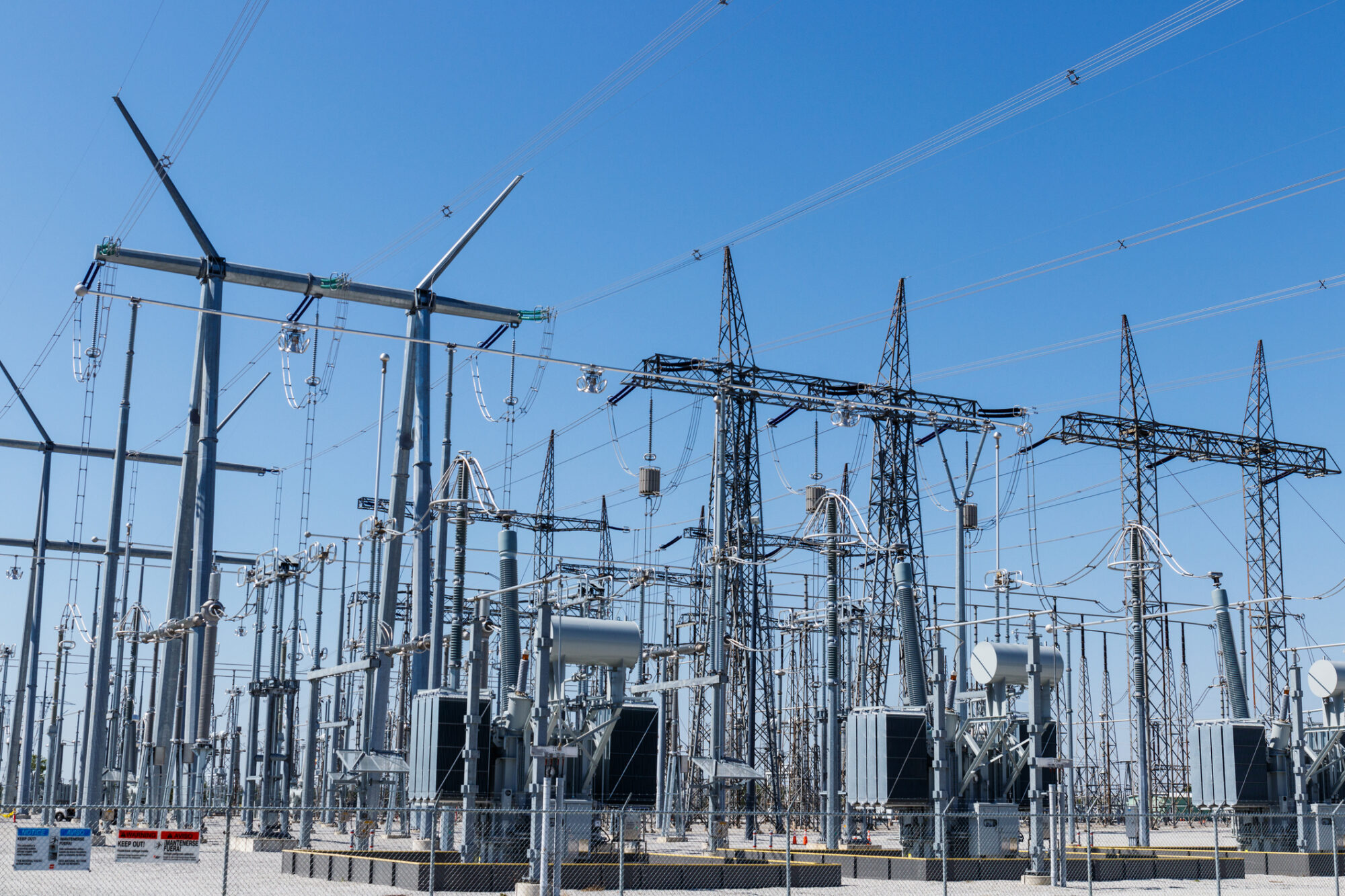
FERC Hosts Technical Conference on the Effectiveness and Improvements to CIP-014-3
August 30, 2023
Expert Discussions and Key Takeaways Focus on Physical Security

Intro to NERC Regulatory Guidance on Inverter-Based Resources
August 29, 2023
As renewable energy proliferates across the US power system, the North American Electric Reliability Corporation (NERC) continues to actively address reliability risks resulting from the implementation of inverter-based resources (solar and wind generation technology) connected at both transmission and Distributed Energy Resources (DER) levels.

FERC Extreme Weather Initiative Will Change the Transmission Planning Process
July 26, 2023
FERC issued a Final Rule directing NERC to develop a new or modified reliability standard addressing transmission system planning performance requirements for extreme heat or cold weather events.

FERC Approves Plan to Register Certain Inverter-Based Resources as part of NERC Mandatory Standards Compliance Program
June 21, 2023
FERC issued an order approving NERC’s compliance filings.
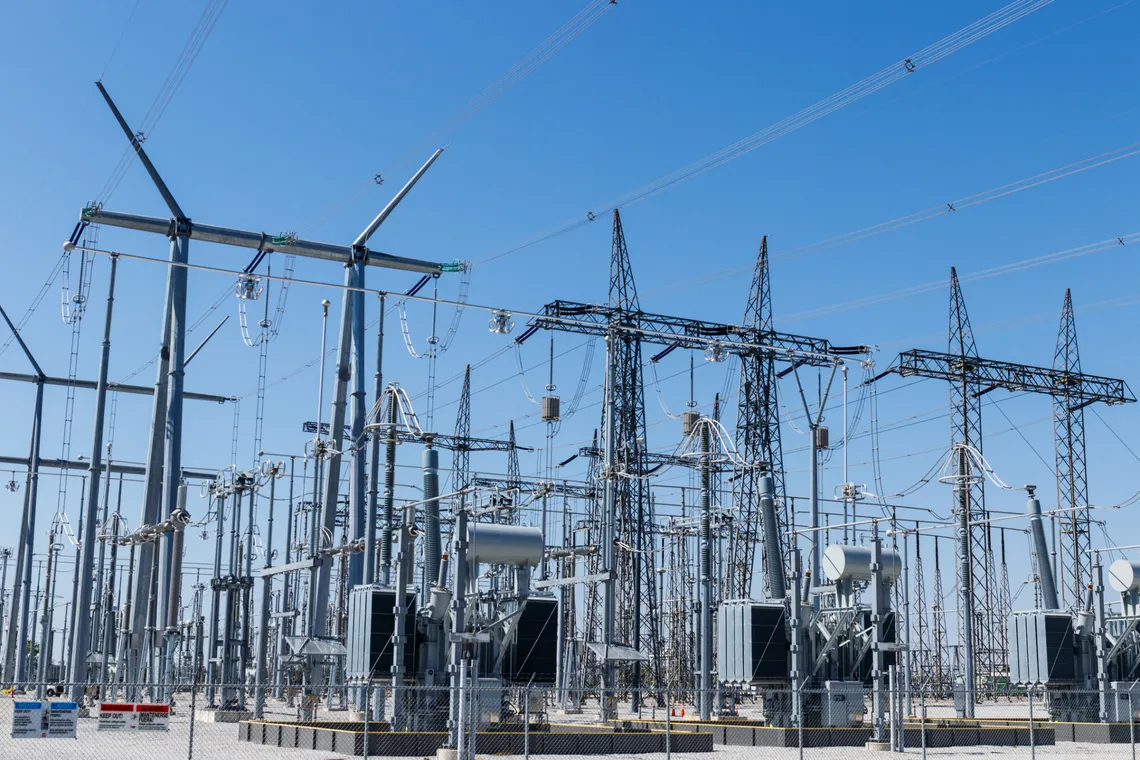
NERC Files Report on Effectiveness on CIP-014 Physical Security Standard
May 25, 2023
On behalf of the North American Electric Reliability Corporation (NERC), its President and CEO Jim Robb, recently presented to the Federal Energy Regulatory Commission (FERC) a summary of NERC’s report on the effectiveness of NERC’s CIP-014 Physical Security Standard. There were almost 1,700 physical security incidents reported to the Electricity-Information Security Analysis Center (E-ISAC) in 2022, an increase of 10.5% from 2021.

FERC Issues Order on Cold Weather Reliability Standards
April 27, 2023
FERC has approved two NERC proposed cold weather-related reliability standards.

FERC Orders Internal Network Security Monitoring Rule to be Finalized
March 14, 2023
FERC directed NERC to develop Reliability Standards to implement INSM within trusted CIP environments.

Insights from the Odessa II Power System Disturbance
February 22, 2023
NERC and TRE release the Odessa II Power System Disturbance Report

New FERC Orders Will Change Regulatory Process for Inverter Based Resources
January 9, 2023
The Federal Energy Regulatory Commission (FERC) recently proposed actions to keep the regulatory process and requirements ahead of reliability risks resulting from the accelerated deployment of Inverter Based Resources (IBR) based solar, wind and battery storage projects.

NERC Releases Facilities Ratings Best Practices Report
December 19, 2022
NERC report on best practices for utilities that have encountered facility ratings program challenges.

NERC Files Comments in the FERC Generator Interconnection Notice of Proposed Rulemaking
November 21, 2022
The rulemaking addresses improvements needed to reliably facilitate the power industry’s transition to renewable and distributed generating resources utilizing inverter-based technologies.
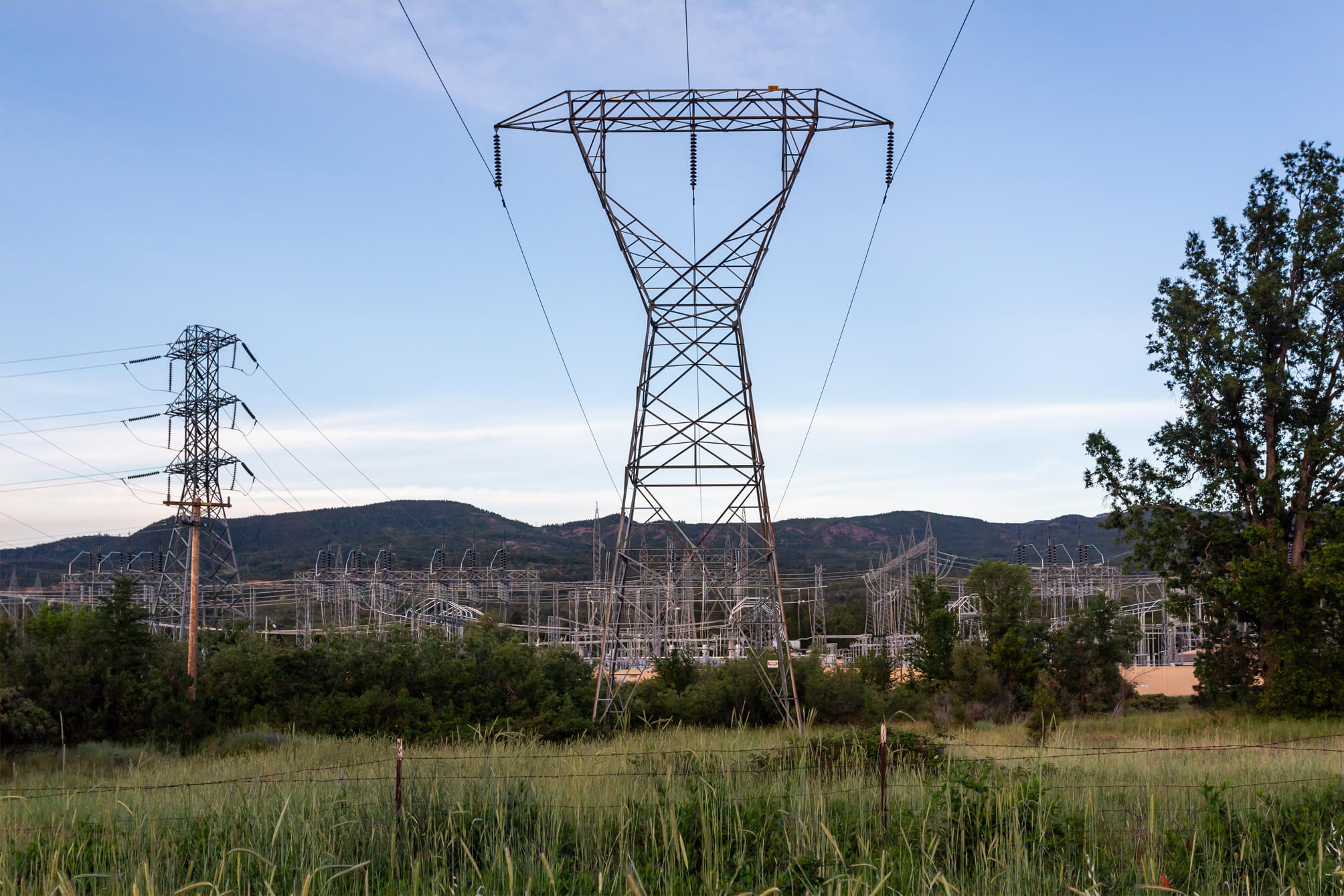
NERC Releases Inverter-Based Resource Strategy Plan
October 25, 2022
The North American Electric Reliability Corporation (NERC) recently released an Inverter-Based Resource (IBR) Strategy, which details the steps needed to successfully integrate IBR facilities into the planning and operation of the power system. The strategy was put in place due to the rapid interconnection of IBR systems, which are extensively used for solar and wind generating facilities, including new battery-based energy storage systems and are one of the most significant drivers of power grid transformation. Because of control system inconsistencies, IBR facilities pose well-documented risks to power system reliability when this strategy’s practices are not adhered to. NERC’s plan calls attention to the need for thoughtful integration of IBRs and identifies current and future work required to mitigate reliability risks resulting from the deployment of this technology.

NERC Releases 2022 State of Reliability Report
September 16, 2022
The North American Electric Reliability Corporation (NERC) recently released its 2022 State of Reliability report, which examines power system performance in calendar year 2021 and evaluates reliability performance trends. The 2022 report identified six key findings regarding power system performance that are summarized as follows:

NERC Proposes Implementation Guidance for PRC-019-2
August 22, 2022
NERC has proposed implementation guidance for PRC-019-2, the standard that verifies coordination of generating unit facility or synchronous condenser voltage regulating controls, limit functions, equipment capabilities and protection system settings.

Revisions to FAC-001 and FAC-002 Submitted for FERC Approval
July 12, 2022
Reliability Standards FAC-001-4 and FAC-002-will resolve uncertainty regarding the meaning of “materially modify” under the currently effective standards.

FERC Order No. 881-A Has Implications for NERC Compliance Programs
June 23, 2022
Updated Order will have significant impact on NERC compliance programs related to both PRC standards and facilities ratings. Utilities should review the Order’s requirements and prepare for changes needed to remain compliant.

NERC’s Revised PRC-024-3 Standard for Inverter-Based Generation Effective in October 2022
May 11, 2022
Changes to PRC-024-3 in support of inverter-based generation performance are going into effect in October of this year. Interconnection programs and documentation procedures may need to be updated in order to maintain compliance.

FERC Issues Notice of Inquiry Regarding Dynamic Line Ratings
April 25, 2022
There are significant technical challenges involved in implementing Dynamic Line Ratings in the planning and operation of utility systems. Utilities should be prepared to modify their NERC compliance programs as necessary to address the potential introduction of DLR in their businesses.

New NERC Guidance Supports the Implementation of Grid Forming Inverters
March 8, 2022
NERC has issued a new report highlighting the key attributes of various inverter controls to support proper implementation and to protect reliability.

NERC Recommends Approaches for Underfrequency Load Shedding Programs
February 24, 2022
In a recently released reliability guideline, NERC recommends additional approaches for Underfrequency Load Shedding (UFLS) program design to help utilities effectively consider the effects of Distributed Energy Resources (DERs). The guidance was developed to address the accelerated transition of the power system to locally installed, decarbonized resources that depend on inverters. These new technologies introduce operational controls issues into the electric grid. UFLS data gathering and analysis methodologies may require modification to address reliability risks.
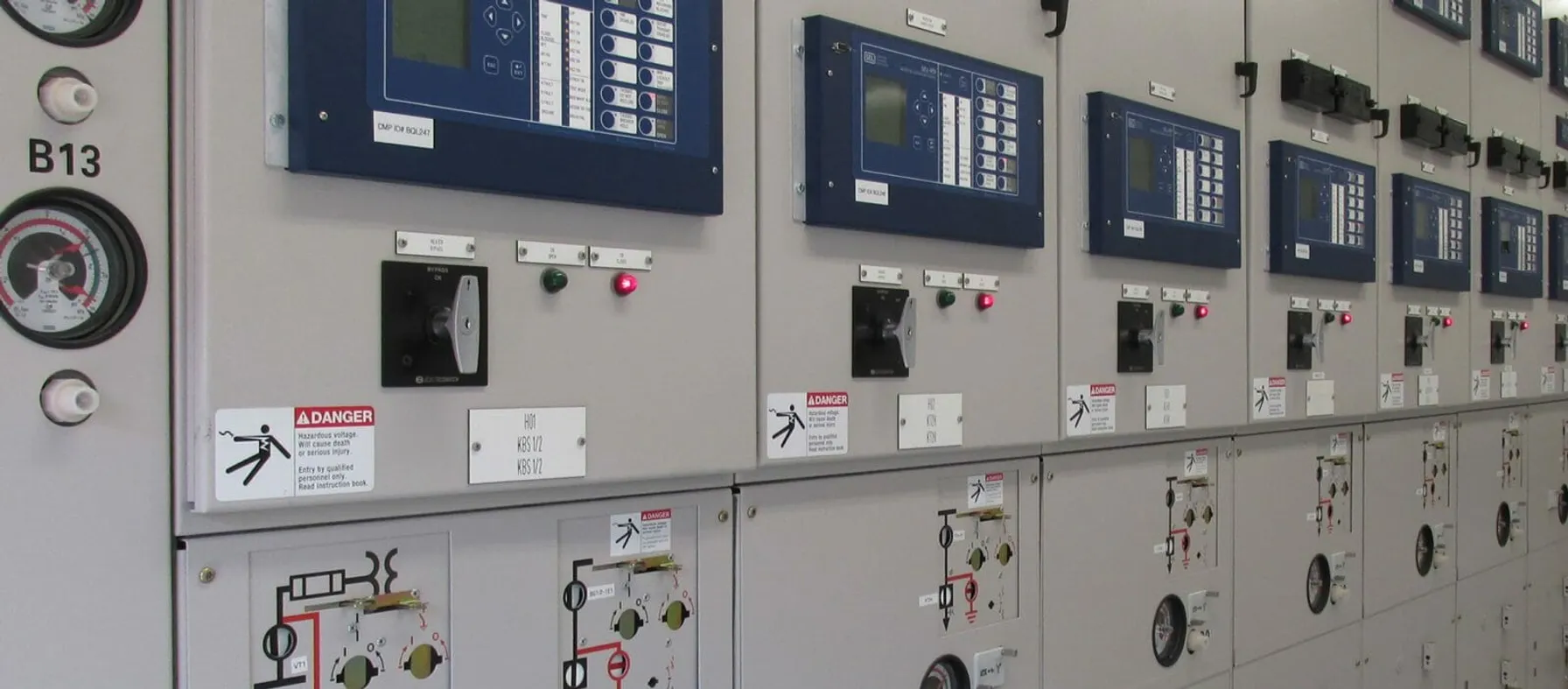
NERC and FERC Recommend Protection System Commissioning Improvements
January 18, 2022
Between 18 and 36 percent of reported utility misoperations were attributed to issues that could have been detected through a properly implemented PSC.

FERC & NERC Issue Joint Report on Freeze Reliability Failures
December 15, 2021
The in-depth report outlines twenty-eight recommendations to address freeze reliability failures, including operating practices and recommendations for NERC standards modifications surrounding generator winterization and gas-electric coordination.
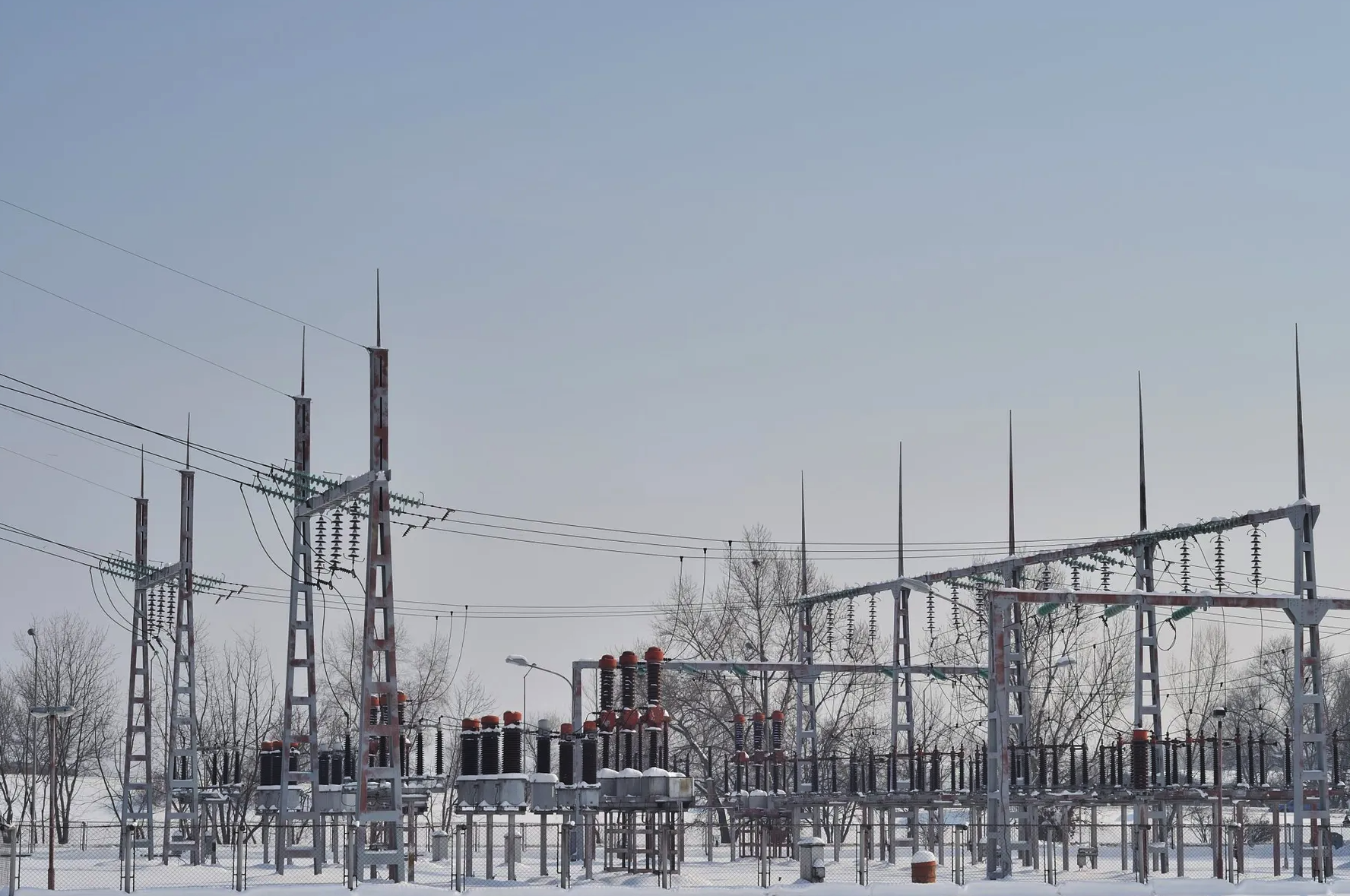
NERC Accelerates Additional Cold Weather Standards Changes
November 22, 2021
At its November 2021 meeting, NERC’s Board of Trustees took aggressive action to advance critical cold weather Reliability Standards. Most notably, the group approved the 2022-2024 Reliability Standards Development Plan, which prioritizes standards projects for the coming years including a resolution to include new cold weather operations, preparedness and coordination standards as high priority development projects.

PRC-002-2 Disturbance Monitoring and Reporting Standard: Initial Mandatory Implementation Plan Dates Approach
November 18, 2021
The Federal Energy Regulatory Commission approved PRC-002-2 in September, 2015. The initial due date for system studies necessary to identify locations for the collection of disturbance related data under Requirement R1 is January 1, 2017.

New Potential Compliance Standards Identified at FERC Technical Conference on Reliability
October 18, 2021
With a focus on the reliability impact of extreme weather and the shortcomings of current system planning approaches, both NERC and FERC conference participants opened the door to potential forthcoming compliance standard enhancements or changes.

NERC Issues Odessa Texas Disturbance Report
September 29, 2021
While NERC has analyzed multiple similar events in California, this is the first disturbance involving a widespread reduction of PV resource power output observed in the Texas Interconnection.

FERC Approves Modifications to NERC’s Cold Weather-Related Standards
September 7, 2021
The Federal Energy Regulatory Commission has approved changes to three mandatory NERC Reliability Standards that aim to better prepare the North American power system to withstand extreme cold weather events.



Electric Reliability Council of Texas Releases 60-Point Plan for Change
August 23, 2021
ERCOT’s recently released “Roadmap to Improving Grid Reliability” presents a plan for change in Texas that includes increasing electric power generation and purchasing significantly more power reserves.

Prepare for Upcoming NERC Compliance Deadlines
August 20, 2021
With 2020 right around the corner, there are many new NERC standards and standards requirements set to go into effect in the areas of Critical Infrastructure Protection and Transmission Operations and Planning.

Developments in Texas and Nationally Mandate Extreme Weather Responses to Protect Reliability
July 23, 2021
Two recent actions will change the current system planning, investment needs and operating procedures for electric utilities. New infrastructure investments and more robust compliance programs will be needed.

Electric System Planning for Extreme Weather Events: NERC Recommends Actions to Protect Reliability this Summer
June 23, 2021
Due to recent extreme weather-related power systems failures, stakeholders are examining the planning and operations practices for all electric utilities.

NERC’s FAC-008 Guidance on Facility Ratings
May 24, 2021
FAC-008 is one of the most data-intensive standards in the NERC regulatory framework. Compliance has been difficult for many utilities. Recently, FERC made public it’s intent to address serious allegations of facility ratings violations, including a lack of rigor by one utility.

NERC Issues Battery Energy Storage Systems Reliability Guidance
April 22, 2021
While NERC has recently published a reliability guideline addressing inverter-based resources generally, they are now giving more attention to the various potential uses of BESS to support effective implementation with newly released guidance.

NERC Proposes Revisions to CIP-008
March 27, 2021
NERC’s CIP-008 standard aims to mitigate reliability risks resulting from a Cyber Security Incident by specifying incident response requirements. Newly proposed revisions would augment mandatory reporting to include incidents that compromise, or attempt to compromise, a utility’s Electronic Security Perimeter (ESP) or associated Electronic Access Control or Monitoring Systems (EACMS).

Cold Weather Reliability Preparedness and Hardening
March 22, 2021
The latest weather impacts to power reliability have accelerated the need for mandatory regulatory compliance changes.

NERC Releases 2021 Compliance Monitoring and Enforcement Findings
February 8, 2021
NERC’s 2021 Compliance Monitoring and Enforcement Program reframes the previous year’s risks and their associated areas of focus. Utilities should review their compliance programs and internal controls to determine if enhancement or changes are need to maintain compliance.

NERC Proposes Revision of Pending TPL-001-5.1 Standard
January 20, 2021
NERC has recently undertaken important standards and guidance development activities related to the proliferation of inverter-based technologies such as solar and wind generation, as well as battery energy storage which is growing as an industry solution to ensure the reliability of renewable power for end-use customers.

NERC and FERC Take Action on Facilities Ratings
December 4, 2020
There has been significant work across the electric industry to improve facility ratings related processes, programs, frameworks, internal controls and best practices. Yet this continues to be a challenging area for utilities, particularly from an asset management and regulatory compliance perspective.

FERC Issues Annual Report on Critical Infrastructure Protection (CIP) Reliability Audits
November 17, 2020
In its 2020 Report on CIP Reliability Audits, the Federal Energy Regulatory Commission found that most of the cybersecurity protection processes and procedures adopted by utilities met the mandatory CIP requirements for protecting the Bulk Electric System. However, there are areas for improvement.

NERC Prioritizes Inverter-Based Resources for Future Standards Development
October 19, 2020
As inverter-based resources found in wind and solar generation technologies continue to rapidly penetrate the U.S. power delivery system, NERC remains focused on managing the potential reliability consequences.

NERC Issues 2020 State of Reliability Report
September 22, 2020
The Report identifies areas of ongoing concern including generation reserve margins and the reliability risk from shifting the resource mix toward renewables.

NERC Issues Lessons Learned on Misoperations Due to Mixing Relay Technologies
August 13, 2020
On July 10, 2020 NERC released new Lessons Learned guidance to address situations where multiple composite protection systems have misoperated as a result of mixing protective relay technologies at the remote terminals of directional comparison blocking (DCB) schemes. This technical information will help utilities improve the reliability of the Bulk Power System.

NERC Reliability Standard PRC-024-3 Approved: Frequency and Voltage Protection Settings for Generating Resources
July 28, 2020
On July 9, 2020 NERC standard PRC-024-3 was approved, paving the way for improved protection systems in support of keeping generating resources connected during defined frequency and voltage excursions.

Summary of NERC CIP Standards Updates
June 29, 2020
FERC has released a notice of inquiry seeking comments on potential enhancements to NERC’s Critical Infrastructure Protection (CIP) Reliability Standards.

NERC Protection System Compliance Studies Due This Year
February 24, 2020
NERC’s PRC-027-1 standard was approved by FERC in 2018 and is set to go into effect on October 1, 2020. Utilities should begin preparing now to meet compliance requirements which include significant system studies.

NERC Compliance Assurance: Maintaining Cross Functional Data Integrity
January 21, 2020
Assuring continued power system reliability is a complex undertaking for utilities. Balancing the demands of system changes and regulatory compliance is an essential strategy for optimizing ongoing operations. Given the wide range of NERC standard families that require simultaneous data management for compliance, data integrity, data flow and data verification are critical for avoiding violations that can impact electric service to customers and communities.

NERC Reliability Report Prioritizes Power System Security Risks for Action
January 2, 2020
NERC’s 2019 ERO Reliability Risk Priorities Report identified and prioritized the major risks facing the utility industry with a particular focus on security issues.

NERC Reliability Report Prioritizes Power System Risks
November 21, 2019
Looking ahead to the many changes coming to North America’s Bulk Power System (BPS), NERC’s 2019 ERO Reliability Risk Priorities Report highlights the top issues requiring industry and regulatory attention and recommends actions for the ongoing protection of BPS reliability.

NERC Pursues Changes to Protection Relay and Control (PRC) Standards
September 24, 2019
Two Standards Authorization Requests currently being debated in the NERC stakeholder engagement process could help clarify PRC standards obligations for generator owners and operators.

NERC to Modify Standard and Develop Compliance Guidance to Accommodate Inverter-Based Generation Technologies
February 20, 2019
Renewable energy systems have dramatically changed the power generation resource mix. These new generation technologies no longer involve directly coupled rotating generators which were once standard in the industry. Now, inverters that change Direct Current (DC) electricity to the Alternating Current (AC) electricity suitable for delivery via AC transmission systems are becoming more prevalent, raising reliability…

NERC Addresses Single Points of Failure in Protection Systems Among Other FERC Concerns
October 25, 2018
As inverter-based resources found in wind and solar generation technologies continue to rapidly penetrate the U.S. power delivery system, NERC remains focused on managing the potential reliability consequences. Building on NERC’s 2019 analysis of several major power disturbances and its report outlining the risks of inverter-based renewable energy resources, the Inverter-Based Resources Task Force (IBRTF) recently issued an industry survey, the results of which will serve as a roadmap for future standards or guidance activities. Contact Us

NERC Proposes Compliance Monitoring and Enforcement Plan for 2019
September 26, 2018
This month, NERC released the first draft of its 2019 Compliance Monitoring and Enforcement Plan (CMEP) which identifies power delivery system risks and outlines compliance audit requirements for next year. The risk elements outlined in the plan include significant differences from previous years, as shown in the table below. Each NERC region must consider these risks as they develop their monitoring and audit scopes for utilities. Utilities should be prepared to be audited and implement any necessary compliance initiatives in these areas.

NERC Calls for New Approach to Reliability Planning Due to Gas Supply Disruption Risks
December 14, 2017
A recently published NERC report concludes that as reliance on natural gas to meet electric generation requirements increases, additional planning and operational measures must be considered to mitigate power system reliability risks.

Hardening Cyber Defenses at Chemical Facilities a Key Part of Federal CFATS Regulations
October 24, 2017
Federal CFATS regulations cover more than just the handling, transport and storage of dangerous chemicals. They also deal with tools and methods terrorists could use to acquire the deadly agents – such as a cyber attack.

NERC CIP-013-1 Standard for Supply Chain Risk Management
September 29, 2017
NERC has filed mandatory standard CIP-013-1 for supply chain risk management, requiring controls to mitigate cyber threats and their impact to the reliable operation of the Bulk Electric System.

NERC Identifies New Reliability Risk due to Utility Scale Solar Generation Inverter Design
June 13, 2017
NERC has released a report documenting its findings and recommendations related to reliability risks from utility scale solar generation projects with implications for PRC-024 compliance, as well as generation, interconnection and protection system technologies.

NERC Standard Extends Maintenance Program Obligations to Generators
February 3, 2014
The approval of NERC Standard PRC-005-2 extends protection system maintenance obligations to Generators and crates one comprehensive standard establishing minimum maintenance activities and maximum time intervals for protection systems and load shedding equipment affecting the bulk electric system.

Cybersecurity Threats Lead NERC to Modify CIP Standards
March 11, 2025
Cybersecurity threats to the Bulk Electric System (BES) are escalating, with attackers continuously evolving their tactics to target critical infrastructure.

FERC Issues Guidance to Improve Power System Security and CIP Compliance
September 30, 2024
This update provides details from FERC 2024 staff report from CIP audits, so utilities can improve compliance and reduce security risks.

Prevent NERC Compliance Failures with Readiness Reviews
February 20, 2024
Every NERC-registered utility must strive for continuous compliance with their portfolio of applicable NERC Reliability Standards

NERC & FERC Release Winter Storm Elliott Report
January 2, 2024
NERC and FERC have released their final report on Winter Storm Elliott which provides reinforcement for recommendations in prior cold weather-related disturbance event reports. The Report identifies critical reliability performance shortcomings and the reliability related near misses. NERC states that a crisis was “narrowly dodged.” The Report outlines the steps the industry must take to avoid a repeat in the future.

FERC Order 901 Calls for Standards to Address IBR Reliability Gaps
November 27, 2023
Inverter Based Resources are playing central role when it comes to adding new electric generation capacity into the bulk power system.

FERC Issues Order 2023 to Resolve Interconnection Process Issues
September 25, 2023
The Federal Energy Regulatory Commission has approved Order 2023 to facilitate and improve the speed and reliability of adding new energy resources to the power system

FERC Hosts Technical Conference on the Effectiveness and Improvements to CIP-014-3
August 30, 2023
Expert Discussions and Key Takeaways Focus on Physical Security

FERC Extreme Weather Initiative Will Change the Transmission Planning Process
July 26, 2023
FERC issued a Final Rule directing NERC to develop a new or modified reliability standard addressing transmission system planning performance requirements for extreme heat or cold weather events.

FERC Approves Plan to Register Certain Inverter-Based Resources as part of NERC Mandatory Standards Compliance Program
June 21, 2023
FERC issued an order approving NERC’s compliance filings.

NERC Files Report on Effectiveness on CIP-014 Physical Security Standard
May 25, 2023
On behalf of the North American Electric Reliability Corporation (NERC), its President and CEO Jim Robb, recently presented to the Federal Energy Regulatory Commission (FERC) a summary of NERC’s report on the effectiveness of NERC’s CIP-014 Physical Security Standard. There were almost 1,700 physical security incidents reported to the Electricity-Information Security Analysis Center (E-ISAC) in 2022, an increase of 10.5% from 2021.

FERC Issues Order on Cold Weather Reliability Standards
April 27, 2023
FERC has approved two NERC proposed cold weather-related reliability standards.

FERC Orders Internal Network Security Monitoring Rule to be Finalized
March 14, 2023
FERC directed NERC to develop Reliability Standards to implement INSM within trusted CIP environments.

NERC Files Comments in the FERC Generator Interconnection Notice of Proposed Rulemaking
November 21, 2022
The rulemaking addresses improvements needed to reliably facilitate the power industry’s transition to renewable and distributed generating resources utilizing inverter-based technologies.

Revisions to FAC-001 and FAC-002 Submitted for FERC Approval
July 12, 2022
Reliability Standards FAC-001-4 and FAC-002-will resolve uncertainty regarding the meaning of “materially modify” under the currently effective standards.

FERC Order No. 881-A Has Implications for NERC Compliance Programs
June 23, 2022
Updated Order will have significant impact on NERC compliance programs related to both PRC standards and facilities ratings. Utilities should review the Order’s requirements and prepare for changes needed to remain compliant.

NERC’s Revised PRC-024-3 Standard for Inverter-Based Generation Effective in October 2022
May 11, 2022
Changes to PRC-024-3 in support of inverter-based generation performance are going into effect in October of this year. Interconnection programs and documentation procedures may need to be updated in order to maintain compliance.

FERC Issues Notice of Inquiry Regarding Dynamic Line Ratings
April 25, 2022
There are significant technical challenges involved in implementing Dynamic Line Ratings in the planning and operation of utility systems. Utilities should be prepared to modify their NERC compliance programs as necessary to address the potential introduction of DLR in their businesses.

NERC Recommends Approaches for Underfrequency Load Shedding Programs
February 24, 2022
In a recently released reliability guideline, NERC recommends additional approaches for Underfrequency Load Shedding (UFLS) program design to help utilities effectively consider the effects of Distributed Energy Resources (DERs). The guidance was developed to address the accelerated transition of the power system to locally installed, decarbonized resources that depend on inverters. These new technologies introduce operational controls issues into the electric grid. UFLS data gathering and analysis methodologies may require modification to address reliability risks.

NERC and FERC Recommend Protection System Commissioning Improvements
January 18, 2022
Between 18 and 36 percent of reported utility misoperations were attributed to issues that could have been detected through a properly implemented PSC.

FERC & NERC Issue Joint Report on Freeze Reliability Failures
December 15, 2021
The in-depth report outlines twenty-eight recommendations to address freeze reliability failures, including operating practices and recommendations for NERC standards modifications surrounding generator winterization and gas-electric coordination.

NERC Accelerates Additional Cold Weather Standards Changes
November 22, 2021
At its November 2021 meeting, NERC’s Board of Trustees took aggressive action to advance critical cold weather Reliability Standards. Most notably, the group approved the 2022-2024 Reliability Standards Development Plan, which prioritizes standards projects for the coming years including a resolution to include new cold weather operations, preparedness and coordination standards as high priority development projects.

PRC-002-2 Disturbance Monitoring and Reporting Standard: Initial Mandatory Implementation Plan Dates Approach
November 18, 2021
The Federal Energy Regulatory Commission approved PRC-002-2 in September, 2015. The initial due date for system studies necessary to identify locations for the collection of disturbance related data under Requirement R1 is January 1, 2017.

New Potential Compliance Standards Identified at FERC Technical Conference on Reliability
October 18, 2021
With a focus on the reliability impact of extreme weather and the shortcomings of current system planning approaches, both NERC and FERC conference participants opened the door to potential forthcoming compliance standard enhancements or changes.

FERC Approves Modifications to NERC’s Cold Weather-Related Standards
September 7, 2021
The Federal Energy Regulatory Commission has approved changes to three mandatory NERC Reliability Standards that aim to better prepare the North American power system to withstand extreme cold weather events.

NERC’s FAC-008 Guidance on Facility Ratings
May 24, 2021
FAC-008 is one of the most data-intensive standards in the NERC regulatory framework. Compliance has been difficult for many utilities. Recently, FERC made public it’s intent to address serious allegations of facility ratings violations, including a lack of rigor by one utility.

NERC and FERC Take Action on Facilities Ratings
December 4, 2020
There has been significant work across the electric industry to improve facility ratings related processes, programs, frameworks, internal controls and best practices. Yet this continues to be a challenging area for utilities, particularly from an asset management and regulatory compliance perspective.

FERC Issues Annual Report on Critical Infrastructure Protection (CIP) Reliability Audits
November 17, 2020
In its 2020 Report on CIP Reliability Audits, the Federal Energy Regulatory Commission found that most of the cybersecurity protection processes and procedures adopted by utilities met the mandatory CIP requirements for protecting the Bulk Electric System. However, there are areas for improvement.

INGAA Foundation Interview with Lauren O’Donnell
June 22, 2020
TRC’s own Lauren O’Donnell is currently the elected Chair of the INGAA Foundation. The Foundation’s primary activity is to sponsor research aimed at promoting natural gas use and safe, efficient pipeline construction and operation.

NERC Addresses Single Points of Failure in Protection Systems Among Other FERC Concerns
October 25, 2018
The board of directors of the INGAA Foundation elected Lauren O’Donnell as its chair for a one-year term. O’Donnell is the vice president of the oil and gas market sector at TRC, a national engineering, consulting and construction management firm that provides integrated services to the energy, environmental and infrastructure markets. “Lauren brings an impressive breadth of environmental and regulatory experience to her role as the Foundation’s new chair,” said INGAA Foundation President and CEO Don Santa, “Her track record of developing environmental processes and plans that prioritize the safe operation and reliable maintenance of America’s natural gas transmission system makes Lauren ideally suited to lead the Foundation.” The INGAA Foundation brings together more than 230 pipeline operators and contractors — including construction companies, pipe mills, engineering companies, consultants, environmental and safety groups and others — to facilitate the efficient construction, safe operation and reliable maintenance of the North American natural gas pipeline system. “I look forward to working with the Foundation’s members to further the mission of the INGAA Foundation to maintain a safe and reliable natural gas pipeline system that meets the growing energy needs of America,” said O’Donnell. “I’ve spent over four decades in the natural gas sector, and now, more than ever, I believe it’s critical that Foundation members work collaboratively to explore and develop new technologies and processes that address the challenges we face as an industry.” As the Chair, O’Donnell looks forward to working proactively with stakeholders and customers to enhance the understanding of the role of natural gas in our nation’s energy future. In her role at TRC, O’Donnell is responsible for developing and implementing strategies to assist TRC’s clients in securing federal permits for new energy infrastructure projects. Prior to joining TRC, O’Donnell was the Director of the Division of Gas—Environment and Engineering at the Federal Energy Regulatory Commission (FERC). During her 35-year career at FERC, O’Donnell worked on developing and implementing processes that advanced the Commission’s environmental responsibilities and was a principal developer of FERC’s pre-filing process for LNG facilities and interstate natural gas pipelines. While managing FERC’s natural gas environmental program, O’Donnell worked collaboratively with a wide variety of stakeholders including federal, state and local agencies, NGOs, and landowner groups. In November, the Foundation board also elected Susan Waller, Senior Strategic Advisor at Enbridge, as vice chair.

Seeking a new FERC license for your hydroelectric project? Here are the 2 key questions to ask.
March 22, 2017
Across the U.S., Department of Energy data show that some 2,200 hydroelectric projects produce more than 6 percent of all the electricity we consume, which amounts to more than one-third of all power generated in 2015 from renewable sources. Operations of many existing hydroelectric projects are governed by 30- to 50-year licenses issued by the…

Dylan Achey
Dylan Achey is TRC’s Manager of Generation Engineering Services. He has been leading the effort with TRC generation clients on evaluating and providing updates/information so that clients can meet applicable NERC standards. His highly technical staff perform NERC compliance standard evaluations as well as studies for both generation and transmission clients that need assistance on technical issues concerning NERC compliance. Contact Dylan at mailto:dachey@trccompanies.com.

Jim Whitaker
Jim Whitaker, PE is Supervisor of Power Systems Studies at TRC. He has over 30 years of experience in Transmission and Distribution Planning, and Substation, Transmission and Distribution Engineering. His Transmission Planning projects include coordinating joint/regional 10-year transmission plans, generator interconnections, regional system assessments, as well as NERC compliance studies. His projects have included studies for both Utilities and Project Developers across the United States in the Eastern and Western Interconnection transmission systems as well as ERCOT. Prior to joining TRC, Jim worked for Xcel Energy, Peak Power Engineering, Tucson Electric Power and Virginia Power. Contact Jim at JWhitaker@trccompanies.com






